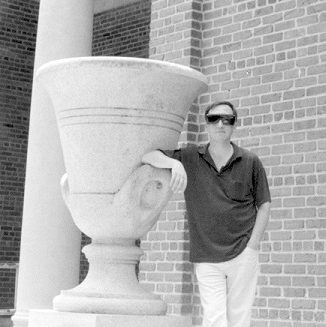By Scott Ross
“If you want a picture of the future, imagine a boot stamping on a human face — for ever.” — O’Brien
George Orwell’s prototypical “dystopian novel” was not a title I was ever assigned in school as I was his Animal Farm, and it’s one I’ve had the intention to read for decades. Since over the last two years I’ve felt more and more that we are living it, this seemed to be a good time to open the book and, having appreciated its largely un-heeded warnings and the ways in which the society Orwell depicts reflects the world of 2022 in increasingly unsettling ways, to sit down with the 1984 movie based on it. If neither was what you might in any respect call reassuring, they didn’t disappoint. As many have been saying for years, Orwell did not write the book as an instruction manual; yet so many of the world’s governments since 1948 seem to have modeled their organization upon it one would imagine that some people never saw it as anything else.
I chose a propitious season to read Orwell’s novel and to watch the writer-director Michael Radford’s adaptation of it, what with the current American president’s administration disseminating nearly constant disinformation about (among other topics) a conflict it precipitated and then having the almighty cheek to create a so-called Disinformation Governance Board for the frighteningly-named Department of Homeland Security (when, prior to 2001, did Americans ever refer to their country by the vaguely Hitlerian term “Homeland”?) It is no accident that many were instantly reminded, by the Board’s name, by its intended purpose and by the available utterances of the lunatic picked to oversee it, of Oceania’s ironically-named Ministry of Truth, concerned solely with presenting disinformation. As this now seems the secondary function of the United States government — the first of course is overseeing the manufacture and selling of the munitions of war; or, in the current context, arming self-professed Neo-Nazis with them and getting an ignorant population to side with those Nazis — no one who isn’t either a born-again neoliberal or permanently asleep could miss the significance of this move, particularly in an election year.
While Michael Radford errs as a screenwriter, I think, is in not getting far enough into either the thoughts of Orwell’s protagonist Winston Smith or the explicit meanings and uses of Newspeak, Doublethink, Ingsoc and Thoughtcrime as explicated by O’Brien and the book he passes on to Smith — both omissions indicating the perennial problem of adaptation, especially of a psychologically incisive literary novel. But while he can likewise find no means of replicating the book’s chilling last words (“He loved Big Brother”) and further misrepresents the Two Minutes Hate, which in the movie goes on and on, he gets most things right. The desaturated cinematography by Roger Deakins strikes me as exactly correct, and on a very limited budget the production design by Allan Cameron, the art direction by Martyn Hebert and Grant Hicks and the costumes of Emma Porteous evoke Orwell with almost uncanny perspicacity. The picture has a beautiful cast, and if John Hurt is a bit long in the tooth for Winston his characterization and performance could not, I don’t think, be bettered. Richard Burton, whose last role this was, makes a superb O’Brien, seemingly humane and gentle even while torturing. Suzanna Hamilton is a compelling Julia, although the filmmaker’s frequent use of her nudity seems to me excessive.
The Criterion release of the movie, thankfully, permits the viewer to choose between the splendid score composed by Dominic Muldowney and the godawful Europop inanities of the Eurythmics imposed on the picture by Virgin against the writer-director’s wishes. Muldowney’s national anthem “Oceania” wisely eschews the impulse to weighting the music with unsettling dissonance. Instead, the composer wrote an uplifting, even thrilling, choral anthem with an intensely memorable tune — exactly what such a song would need to be, since the object is to inspire unthinking patriotism. Are “The Star-Spangled Banner” or “God Bless America” any less insidious?

Text copyright 2022 by Scott Ross



Facebook’s own Ministry of Truth prohibits sharing your blog…
Just perfect, isn’t it? But WE’RE the troublesome ones.